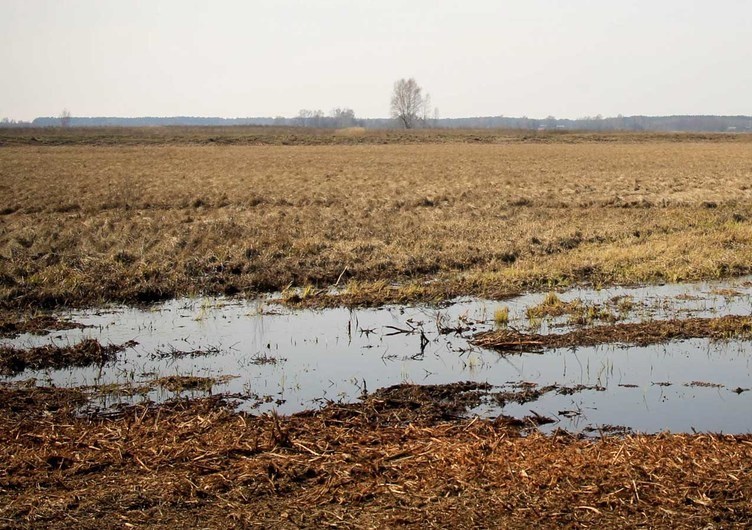The situation at EU’s external borders with Belarus continues to raise concerns about human rights and humanitarian aid but it is difficult for outsiders to visit the area and take stock of the migration crisis and the application of EU law there.
The Polish authorities have declared a state of emergency in its border region with Belarus and is refusing access to it for Polish and international human rights organisations, journalists and even EU officials, ignoring that it is also an EU external border. The only outsider allowed to visit there is the Polish ombudsman but his reports are classified and not shared with EU.
Even the European Commission in charge of home affairs and migration, Ylva Johansson, has not been able to visit the border region. The Director-General for Migration and Home Affairs did visit Poland last week but only the capital where she met NGOs and Polish officials to discuss border management, humanitarian issues and the compliance of Polish asylum law with EU rules.
A spokesperson for the Commission confirmed on Tuesday that it was still not possible to arrange any visits to the border. He had no information as to why Poland is denying access to the Commission to the border region. “The Commission will continue to emphasise the importance of this and wait for Poland to grant access in the future.”
“We must protect our shared border with shared EU resources based on shared values,” Commissioner Johansson said recently in an European Parliament plenary. “We must stand firm and united towards Lukashenko. And we must do it in a way that shows that we, the European Union, are based on other values, on the rule of law, and in full respect of fundamental rights”.
The Commission has called on the member states concerned to ensure that people stranded at the border are given the necessary care and assistance but appears not to know if any humanitarian aid has reached them, in line with a ruling by the European Court of Human Rights on 25 August.
The Polish and Latvian authorities were requested to provide people stranded at their borders with Belarus with food, water, clothing, adequate medical care and, if possible, temporary shelter. The decision was based on a rule which allows the Court, in exceptional cases, to decide on interim measures where applicants face an imminent risk of irreparable harm.
Following alarming reports of people who had died of exhaustion at EU external borders with Belarus, MEPs Tineke Strike (Greens/EFA) and Thijs Reuten (S&D), both Members of the Committee of Civil Liberties, tried to visit the borders of Poland and Lithuania with Belarus in the beginning of this week.
“We wanted to see with our own eyes what is going on there,” said Tinike Strike at a press briefing yesterday (27 October). “We were not allowed to enter the Polish border region and could only visit the Lithuanian border.”
She shared the Commission’s opinion that the problems at the border are caused by the Belarusian regime, which is instrumentalising migrants to exert pressure on the EU, but was also concerned about EU’s reaction which in her view is playing into the hands of the regime. “EU is rightly supporting Poland and Lithuania in protecting their borders but it should also support them in respecting human rights.”
By not doing this, EU is unwittingly giving the Lukashenko regime a “double bonus” by betraying its own values, Thijs Reuten said.
“The regime is pushing in migrants but we are pushing them back and not allowing them to apply for asylum,” Strike said, “leaving them in limbo at the border.”
Both Poland and Lithuania have changed their legislation on asylum procedures in a way that deprives migrants, who often lack documents, of any practical way to apply for asylum, according to Strike. The Polish authorities claim that the migrants cannot apply for asylum in Poland because they might want to continue to other member states but they can neither claim for asylum in Minsk.
The situation in Lithuania seems somewhat better where about 3000 migrants have managed to apply for asylum but hardly any of the applications have been approved and all migrants have been put in detention camps with limited possibilities to appeal against the decisions, according to the MEPs.
Not being able to visit the Polish border region, the MEPs could only guess how many migrants are stranded there but estimated the number to several thousands.
The two MEPs met also the European Border and Coast Guard Agency (Frontex), an EU agency with headquarter in Warsaw. According to the MEPs, its executive director was not sure that push backs are illegal. He lost the trust of the European Parliament already in December last year after a hearing in the Liber committee of the Parliament.
Although Fundamental Rights Monitors have been recruited by Frontex, they are only present at Poland’s official border crossings where border guards from Frontex are deployed. In Lithuania, where Frontex border guards are operating along the border, the monitors are prevented from accompanying them.
Poland is at odds with the EU on rule of law issues and the independence of its judiciary. The Commission is soon expected to decide on which action to take. Tineke Strike told The Brussels Times that the Parliament will ask the Commission to request the reports of the Polish Ombudsman on the situation in the border region.
M. Apelblat
The Brussels Times

